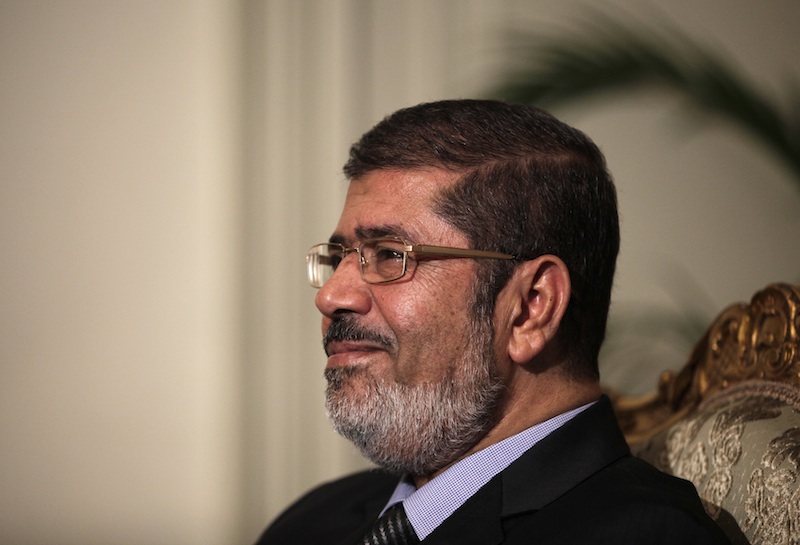I wanted to update you on the developments over the course of the day since the update on Egypt I wrote at noon. Over the last five hours we’ve seen an uptick in scattered violence and reports of Muslim Brotherhood counter demonstrators hitting the streets armed. A hundred lightly confirmed reports don’t amount to one solid thing to hang your hat on. So I’d recommend skepticism on that last point, given the fog of war and the lack of any truly reliable narrator.
But the broader arc is coming into focus. The President is in something like hiding, albeit not by that name. A good part of his cabinet has resigned. The military is acting autonomously, to put it generously. Morsi’s government appears to be simply disintegrating. And as its civilian existence deteriorates, the Muslim Brotherhood, the underlying organization and movement behind Morsi, seems to be moving more toward a physical confrontation with protestors on behalf of ‘legitimacy’.
Of course, they have a decent claim to legitimacy. But that captures the upside down nature of the situation that they make feel the need to or feel reduced to taking to the streets with bats and guns to defend the presidency of one of the leaders of their movement.
Notably, the more extreme Islamist party, al Nour, has also called on Morsi to step down, effectively washing its hands of him as an ally in a broader Islamist context. A very different figure, but one with some common resonance, Tariq Ramadan, grandson of the founder of the Muslim Brotherhood, has also called on Morsi to step down.
As I suggested this morning, on the surface this seems like a drama about whether the protestors in the streets or the Army can or will topple Morsi. But the reality is different. Morsi’s civilian government has in many ways already collapsed. And all the parties are standing at the precipice trying to decide what to do about it.
Meanwhile, the White House is clearly telling Morsi – or communicating to him through intermediaries that his position is untenable and that he has to move toward some sort of government of national unity and perhaps, in all probability, near-term elections. But over the course of the afternoon the State Department has pushed back against these reports, repeating bromides about not supporting any particular force or dictating an outcome but championing democratic process itself.
I think we can safely disregard these denials, at least in their totality.
The United States’ position here is an important part of the equation and fascinating in its own right. The Obama White House does not like Morsi or his movement. But he’s been less ideological and more helpful (‘pragmatic’ is the catchword) on Egypt’s relationship with Israel than many in the US and Israel anticipated – particularly in managing the situation in Gaza and in the restive Sinai. Clearly, though, the US would shed no tears for Morsi’s departure. But the White House sees a deep US interest in not having a disruption to the democratic process – in other words, a coup. Given the US government’s delicate, fraught dance with political Islam across the region, the White House especially does not want to be or be seen to be in the position of violating its democratic principles in a case where an Islamist president has won a legitimate election.
This is a genuine test of the Obama foreign policy team, a particularly because it’s one of those situations where the administration’s influence is quite limited and yet there are plenty of ways to screw it up. I would imagine what the White House is wrestling with now is how to manage that conflicting set of interests I mentioned above without remaining so hands off, or staying the military’s hand so strongly, that you get a spiral of violence that cannot be easily unwound.
The final – or rather than latest – development is that Morsi or “Morsi” took to twitter, of all places, to say that he will not step down and demand that the military withdraw its ultimatum. This is notably something he was unwilling to do 24 hours ago when his power was likely far greater.
This doesn’t necessarily put Morsi beyond what the US seems to be calling for – which I believe is not necessarily resignation but the convening of a national unity government. So this is perhaps a case where there’s more than 140 characters that we’d like to hear from Morsi in a case like this. Morsi’s office has also said earlier today that his announcement would be a joint one with the military, perhaps signaling negotiations that eventually broke down or simply misinformation.
All that being said, Morsi seems to be ruling out or closing off any path to a resolution of the current drama that threads the needle between democratic disruption and a descent into violence or a military coup.







